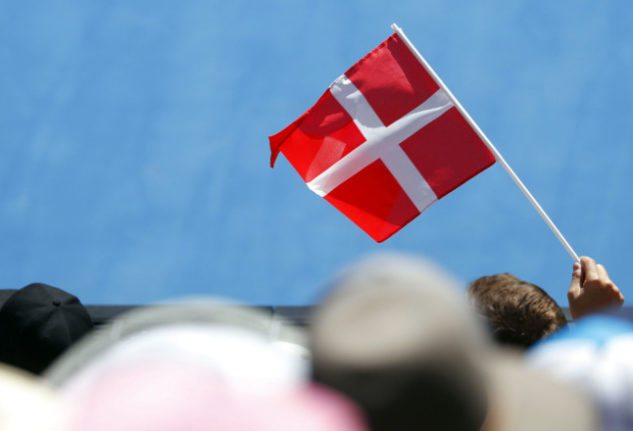Most Danish households have a small arsenal of flags in various sizes to suit all of life’s most Danish occasions, and there’s a year-round section of Dannebrog party supplies in most grocery stores. Don’t forget the Dannebrog garlands for your Christmas tree, either.
But how did the Danish flag develop this cult-like devotion? (Other than apocryphally falling from the sky in 1219, of course.) According to Torben Kjersgaard Nielsen, an historian at Aalborg University and author of a book on the Danish flag, the Dannebrog was strictly a symbol of royalty and the military through the 18th century. But in 1801, celebrated actor H.C. Knudsen stirred up patriotic sentiment with performances of songs and poems honouring Denmark, always staged in front of a Dannebrog.
“From then on, the flag grew to become a popular flag, pointing to allegiance to the kingdom (fatherland) rather than the monarch himself,” Kjersgaard Nielsen told The Local. Golden Age poetry praising Denmark’s ancient heritage natural beauty further swelled national pride, to the Dannebrog’s benefit.
READ MORE: Denmark’s Dannebrog ‘fell from sky’ 800 years ago today

By the 1830s, Danes were flying the Dannebrog so much it became a source of concern for the autocrat king Frederik VI—“flags were at his time starting to be used as markers and symbols of independence and democracy” as in France’s July Revolution, Kjersgaard Nielsen explained. In 1833, Frederik VI forbade private use of the Dannebrog over the government’s objections.
But even the king couldn’t keep the Dannebrog down. “The popular use of the Dannebrog surged during the war with Schleswig-Holstein in 1848-50 and the personal uses may have developed from there,” Kjersgaard Nielsen said. “It was used hanging as a garland on Christmas trees (German tradition, in fact), and it was used to celebrate happy events, weddings, anniversaries and probably also birthdays.” After it became impossible to enforce, the ban was lifted in 1853 and Danes have proudly hoisted the flag at every opportunity since.
Today, the flag represents joy and celebration as well as a love for country, Kjersgaard Nielsen said. “There is a debate going on in Denmark – and it has for a long time now – where some people argue that the flag is xenophobic and overly nationalistic; others – the majority – seem to understand that this is just one of the manifold uses of the flag and that waving the flag does not mean supporting right wing policies.”
READ MORE: Danish policies ‘fuel fear and xenophobia’: UN
Last month, you likely saw the Dannebrog plastered on studenterkørsel—the party buses ferrying tipsy gymnasium graduates from house to house—and on storefront windows advertising sales. It’s never too early to start collecting for next year’s Flag Day, or Dannebrogsdag, on June 15th.



 Please whitelist us to continue reading.
Please whitelist us to continue reading.
Member comments